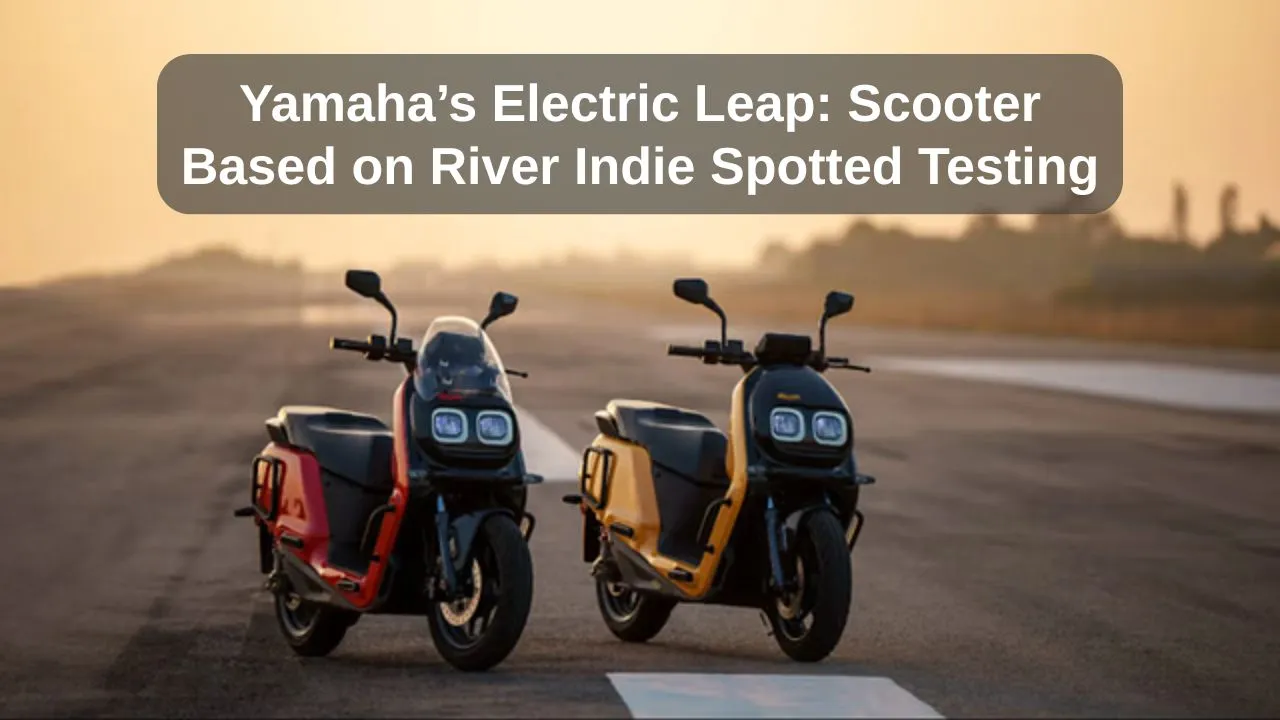Yamaha’s first electric scooter, built on the River Indie platform, has been seen testing on Indian roads, a move that has drawn interest from both auto enthusiasts and industry observers. Particularly in India, where the two-wheeler EV market is expanding, this is a major turning point for the Japanese behemoth in the electric mobility field.
The Indie River: A Robust Base
The River Indie, created by Bengaluru-based startup River, gained notoriety right away for its urban-focused features and useful design. With a wide floorboard, ample under-seat storage, a 4 kWh battery pack, and a top speed of about 90 km/h, the Indie was built with practicality in mind. Its tough, roomy design is ideal for everyday riders seeking dependability, comfort, and durability.
Yamaha appears to have taken the calculated approach by basing its electric scooter on this solid and established base after realizing the possibilities of the Indie’s platform.
What the Spy Photos Show
With minor yet significant changes, the newly saw test mule suggests a Yamaha-branded River Indie. The scooter has the Indie’s basic appearance, but important details like the panel designs, lighting configuration, and possible Yamaha-specific branding imply it’s more than just a rebadged model.
In order to meet Yamaha’s international quality requirements, there are also rumors that the digital instrumentation, linked functions, and powertrain refinement may be improved.
A Sensible Approach: Working for Scale and Speed
Instead of creating an electric scooter from the ground up, Yamaha’s choice to work with a company like River demonstrates a clever and forward approach. It enables Yamaha to cut development expenses, save time, and quickly enter the market with a product that is already suited to Indian roads and riders.
In order to speed up their electric transition, established automakers are collaborating with agile startups, which is also consistent with the larger trend.
Performance and Features Expected
If Yamaha expands on the Indie platform already in place, the scooter might have:
- 120 km is the real-world range of a 4 kWh battery pack.
- Maximum speed of 85–90 km/h, perfect for commuting in cities and semi-urban areas
- Practical design and ample under-seat storage
- Intelligent connectivity capabilities and ride modes unique to Yamaha
- Fast charging capacity, contingent on final tune by Yamaha
What the Market Will See From This
Major companies like Ola Electric, Ather Energy, TVS, and Bajaj are already participating in the rapidly growing Indian electric scooter market. The arrival of Yamaha, particularly with a useful and tested product, may upend the market and provide customers with a dependable substitute that combines Indian sensibility and Japanese engineering.
More than just a new product, the appearance of Yamaha’s River Indie-inspired electric scooter heralds a new era of EV innovation. In India’s rapidly expanding electric two-wheeler sector, Yamaha’s next electric scooter has the potential to revolutionize the industry with the correct fusion of regional design and global standards.
All eyes will be on Yamaha’s positioning of this new EV and how it sets itself apart from the competition as the launch date approaches.

